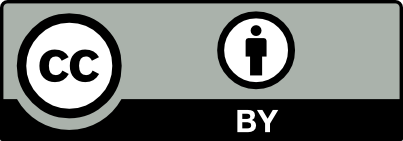Intersectoriality and potential conflicts of interest between governments and private, commercial sector within the context of food and nutrition actions to deal with chronic non-communicable diseases
DOI:
https://doi.org/10.3395/vd.v2n4.460Keywords:
ntersectoral Action, Conflict of Interests, Chronic Disease, Health Policy, Food and Nutrition Programs and PoliciesAbstract
This article analyzed the potential conflicts of interest between government and private commercial sectors in the area of food and nutrition (FN) activities within the context of intersectoral proposals for dealing with chronic non-communicable diseases (CNCD) in Brazil. To this end, academic articles and institutional documents published after 2000 were identified that addressed FN actions in CNCD policies guided by intersectoriality. Elements that contributed to understanding the potential conflicts of interest between governments and the private, commercial sector within the context of intersectoral strategies to deal with CNCD were prioritized. It was concluded that the principle of intersectoriality disassociated from a political process that complicates the eligibility criteria and institutional practices of the sectors responsible for the set of actions that comprise government policies may serve as facilitators for favoring commercial interests. Participation in the decision-making process of the sectors of commercial interest whose practices, driven by increased demand for their products and the progressive concentration of power, contradict the purposes and principles of public policy, may delay, reduce, or prevent effective actions to reduce CNCD. This possibility is particularly relevant in the context of attributions that are specific to government entities, especially regulatory strategies.Downloads
Downloads
Published
Issue
Section
License
Copyright (c) 2014 Health Surveillance under Debate: Society, Science & Technology (Vigilância Sanitária em Debate: Sociedade, Ciência & Tecnología) – “Visa em Debate”

This work is licensed under a Creative Commons Attribution-NonCommercial-NoDerivatives 4.0 International License.
COPYRIGHT ALLOWANCE The author (s) hereinafter designated as the ASSIGNOR hereby assign and transfer, free of charge, the ownership of the copyrights related to this ARTICLE to the Vigilância Sanitária em Debate: Sociedade, Ciência & Tecnologia (Health Surveillance under Debate: Society, Science & Technology) – Visa em Debate, represented by FUNDAÇÃO OSWALDO CRUZ, established at Av. Brasil, nº 4365, Manguinhos, Rio de Janeiro, RJ, Brazil, CEP 21045-900, under the conditions set out below: (a) The terms and conditions set forth in this Agreement shall apply to the following: 1. The ASSIGNOR declares that they s(he) is (are) the author (s) and owner (s) of the copyrighted property of the ARTICLE submitted. 2. The ASSIGNOR declares that the ARTICLE does not infringe the copyrights and / or other property rights of third parties, that the disclosure of images (if any) has been authorized and that they s(he) assume(s) full moral and / or property liability for its content, before third parties. 3. THE ASSIGNOR assigns and transfers all copyrights relating to the ARTICLE to the ASSIGNEE, especially the rights of editing, publication, translation into another language and reproduction by any process or technique. The ASSIGNEE becomes the exclusive owner of the rights related to the ARTICLE, and any reproduction, totally or partially, is prohibited in any other means of publicity, printed or electronic, without prior written authorization from the ASSIGNEE. 4. The assignment is free and, therefore, there will be no remuneration for the use of the ARTICLE by the ASSIGNEE.







